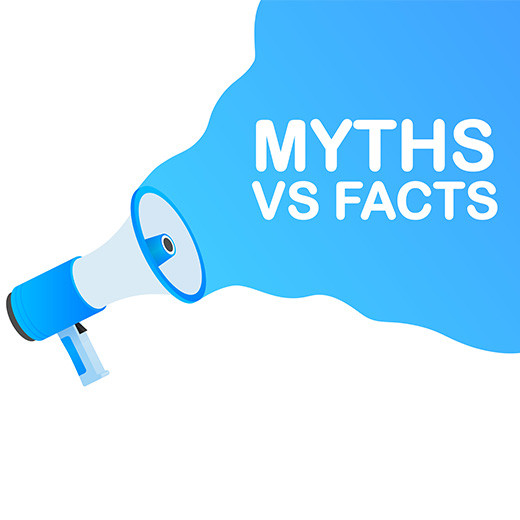CBD Myth-Busting: 5 Misconceptions and What You Should Know
Aug 17th 2020
Over recent years, CBD’s popularity has gone through the ceiling. From athletes to make-up personalities to wellness gurus, we have seen CBD products becoming a recurring star in celebrities’ and regular people’s routines. According to BDS Analytics and Arcview Market Research, the leading cannabis researchers, by 2024, the collective market for CBD sales in the U.S. will surpass $20 billion.
But, despite its popularity and the new developments on the possible CBD effects, there is still a lot of misinformation going around, some even spreading overtly false news. To clear things once and for all, we’re doing some serious myth-busting and compiled some of the most common false beliefs about CBD and provide their factual counterpart.
Myth #1: CBD is addictive and will get you high.
Primarily one of the most popular and persistent misinformation about CBD oil is that it is addictive and will get you high. The truth is, CBD is non-psychoactive so it will not get you high. And here is why:CBD extracted from the hemp plant has THC content that is practically low. THC or tetrahydrocannabinol is the chemical compound responsible for euphoric effects which makes you feel high. By law, CBD products can have no more than 0.3% THC.
Myth #2: CBD can downright kill you.
Perhaps one of the most mind-boggling myths about CBD is that it can kill you, when in fact, it is practically safe to use.
According to the Drug Awareness Warning Network Annual Report, published by the Substance Abuse and Mental Health Services Administration (SAMHSA), there has never been a death recorded from the use of cannabis. In a laboratory test, it found that a 70-kg person needs to swallow 70g of the drug, which is about 5,000 times more than is required to produce a high.
Myth #3: Buying CBD is difficult because it is illegal.
There may be a lot of people who would want to try CBD products but are hesitant to do so, thinking that they do not have access to it. In reality, you don’t need a prescription from a doctor to buy or use CBD. While there is no set age restriction for purchasing and using CBD, some local state jurisdictions and CBD companies set their own age limits. Usually, it’s between 18-21 years old. However—and this is very crucial—the legality depends on the source of the CBD. Hemp-derived CBD is legal in all 50 states, but marijuana-derived CBD is not legal federally. This is because of the level of THC. As per government classification, hemp is any plant of the cannabis family that contains less than 0.3% THC. Marijuana is classified as any plant of the cannabis family that contains greater than 0.3% THC. To be on the safe side, make sure that you familiarize yourself well with local and state laws before you do the purchase. Complete Hemp CBD oil products are all hemp-derived.
Myth #4: You can’t use CBD every day. It is harmful to the body.
You may not be aware of it, but we all have an endocannabinoid system, which is responsible for the regulation of vital functions in the body like memory, sleep, reproduction, mood, and appetite, to name a few. When there is a deficiency in the endocannabinoid system, you may incur disease or illness.
In a study posted by the National Institute of Health, it was determined that manipulating the endocannabinoid system by introducing external cannabinoids like CBD may help in treating a variety of medical ailments.
Myth #5: CBD is a marketing scam. There is no science to back it up.
Out of all the misinformation laid down, this could be the most far-fetched. It is true that there are still continuing studies as to the use of CBD, but likewise, there have been many significant findings that could contribute to the possible ways CBD benefits the body. Check out some CBD-related studies on epilepsy, inflammation, and pain management.
Research is key
Any possible benefits of CBD should not be negated by misinformation and myths. Whether you’re exploring CBD oil for pain, for relaxation, or for skincare, the key here is to be well-informed both with how CBD oil can enhance your lifestyle and what legalities come with it in your state.
References:

